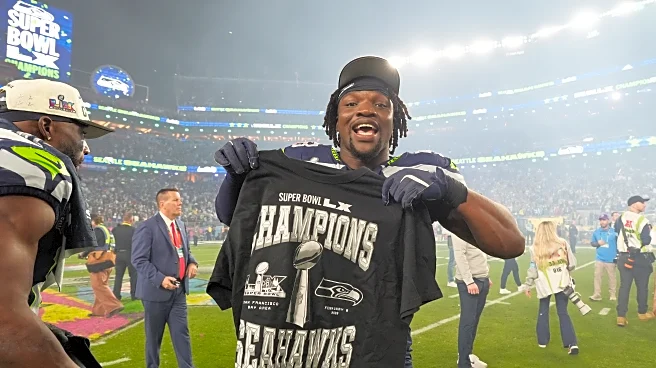What's Happening?
Former anti-vaccine advocates, including Heather Simpson and Lydia Greene, are re-evaluating their support for Robert F. Kennedy Jr. and his organization, Children’s Health Defense. Simpson, who once became an 'anti-vax influencer' after being influenced by Kennedy's views, has since co-founded 'Back to the Vax' with Greene, aiming to counter misinformation. The organization, Children’s Health Defense, has been a significant source of vaccine misinformation, challenging vaccine policies and spreading false claims. The shift in perspective among these former supporters highlights a growing concern over the impact of misinformation on public health.
Why It's Important?
The reconsideration by former anti-vaccine advocates underscores the broader public health challenge posed by misinformation. As vaccine hesitancy grows, fueled by organizations like Children’s Health Defense, public health officials face increased difficulty in maintaining vaccination rates necessary to prevent outbreaks of diseases like measles. The shift in stance by these individuals could signal a potential change in public opinion, which may influence others to re-evaluate their views on vaccines. This development is crucial as it may help counteract the spread of misinformation and support efforts to increase vaccination rates.
What's Next?
The ongoing efforts by Simpson and Greene to promote accurate vaccine information could lead to increased public awareness and potentially higher vaccination rates. Public health officials may leverage these narratives to combat misinformation. Additionally, the actions of RFK Jr. as Secretary of Health and Human Services, such as altering vaccine policies, will likely continue to be scrutinized by health experts and could influence future public health strategies.
Beyond the Headlines
The ethical implications of spreading misinformation about vaccines are significant, as they can lead to preventable diseases and deaths. The role of influential figures in perpetuating such misinformation raises questions about accountability and the responsibility of public figures to provide accurate information. The shift in perspective by former supporters may also reflect a broader cultural shift towards valuing scientific evidence over anecdotal claims.










